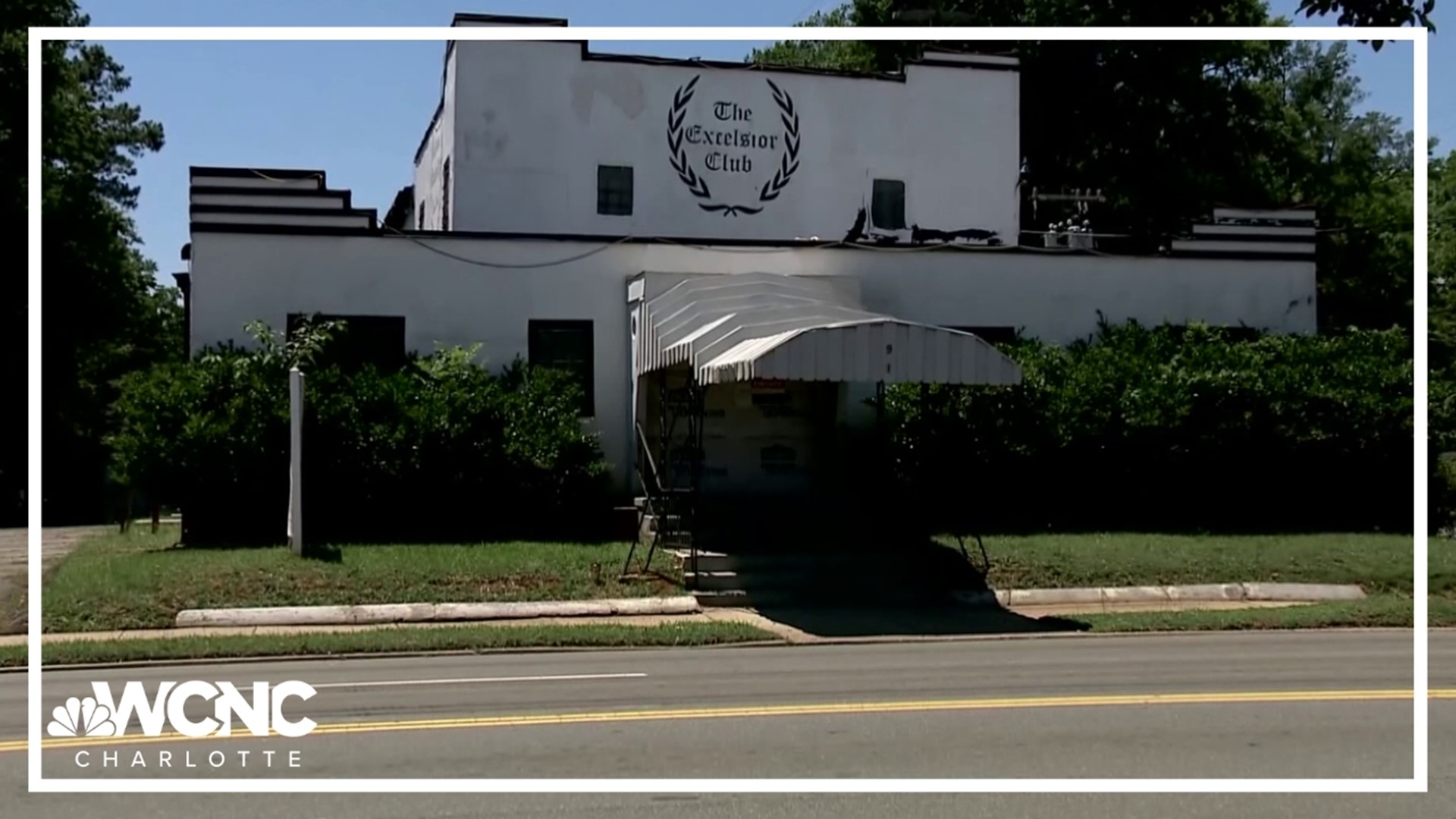CHARLOTTE, N.C. — The birth of Charlotte's Excelsior Club came when its founder, James Robert McKee, was working as a head mail clerk in 1939.
McKee also tended bar at various restaurants in the Queen City. That experience helped McKee hatch the idea to open Charlotte's first nightclub for African Americans. In 1944, McKee realized his dream when Excelsior Club opened its doors to guests.
Ken Koontz, a former owner of Excelsior Club in the 1980s, told WCNC Charlotte anchor and reporter Jane Monreal that McKee started Excelsior Club as a way to give Black Charlotteans a place to belong.
"The Black experience, was, if you were a teacher or principal or preacher or supervisor, even on your job, even if it may have been an industry somewhere, you were considered rich, high end," Koontz said. "And people like that couldn't go to a country club."
According to the Charlotte-Mecklenburg Historical Landmarks Commission, by the '50s and '60s, it became a favorite watering hole for movers and shakers, from politicians to musicians, including Nat King Cole.
"We had a great run with it," Koontz said. "And we endeared ourselves to Jimmy and we told him, 'If you ever get to a point you really want to sell it, we'd love to have it.' So that's how it initially came to be."
Koontz sold his share of the club in 1987 but not before seeing the Excelsior deemed a historic landmark.
"My purpose was, and I told Jimmy, who was a close personal family friend, before I bought it, I said, 'Jimmy, this needs to be preserved because Charlotte has no appreciation for history, and certainly no appreciation for Black History,'" Koontz explained.
When it comes to Excelsior Club's modern day legacy, some people still talk about "Dirty Thirty Thursday." Hosted by local radio personality Bea Thompson, Dirty Thirty Thursday became one of the club's most successful concepts over a 15-year period.
"What you see here, stays here. And you couldn't take any pictures at 'Dirty,'" Thompson said. "For me, it was fun. And it allowed the side of my personality to come out that could not come out on air. So it was not only a friend thing, but a familial thing."
Thompson remembered regulars filling the dance floor to music from the '70s to the 1990s.
"The place that the Excelsior and that 'Dirty' had for a lot of people, I know of six marriages that came out of 'Dirty' over the course of that 15 years, six marriages," Thompson said.
Today, the future of Excelsior Club seems to be in limbo. After a developer from California bought the property in 2020, one of the holdups in redeveloping the club is a question of parking.
One thing is for certain. Like Thompson and Koontz, many people remember what Excelsior meant for Charlotte's Black community and hope to see it have life again.
Contact Jane Monreal at jmonreal@wcnc.com and follow her on Facebook, X and Instagram.
WCNC Charlotte is committed to reporting on the many issues facing the communities we serve. We tell the stories of people working to solve persistent social problems. We examine how problems can be solved or addressed to improve the quality of life and make a positive difference. WCNC Charlotte is seeking solutions for you. Send your tips or questions to newstips@wcnc.com.

